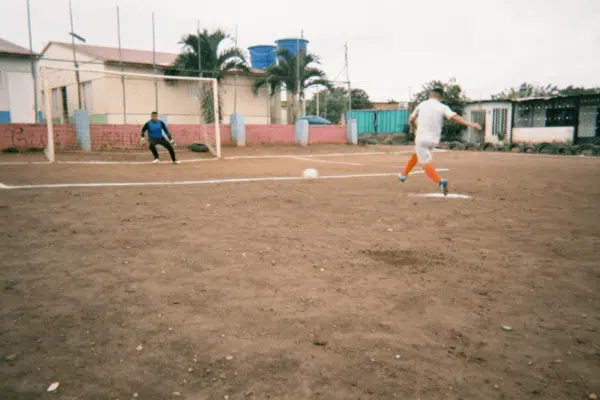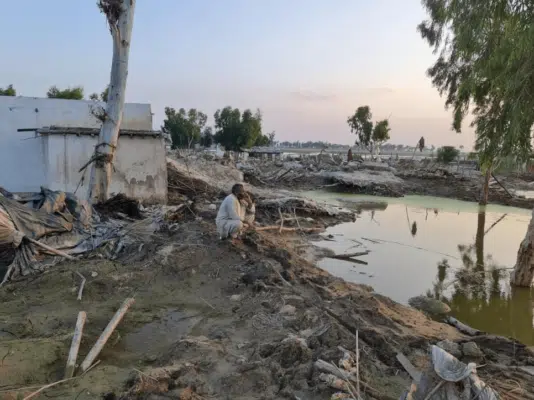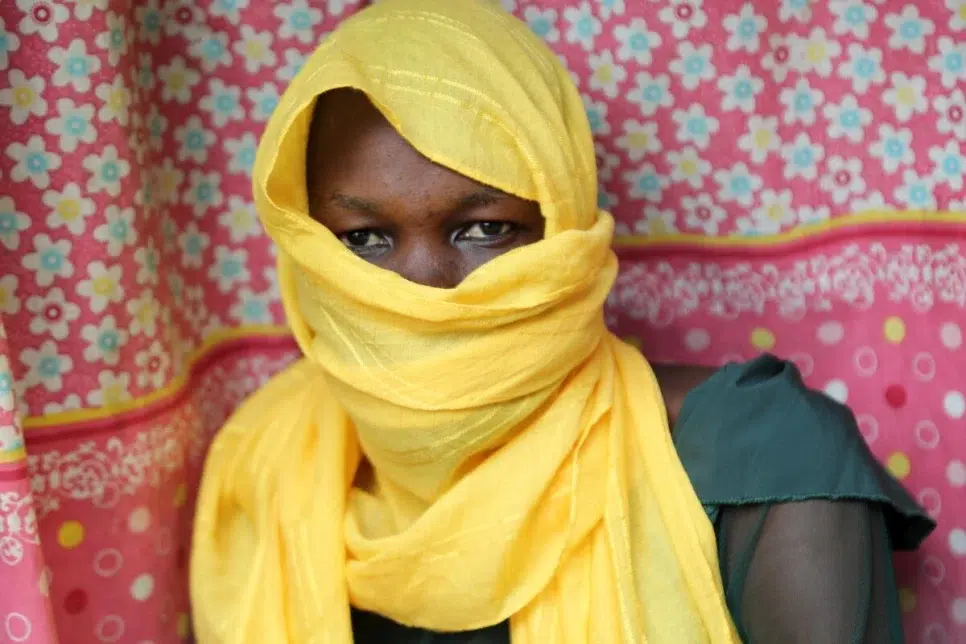
Roda Jock*, a South Sudanese refugee living in Gambella, Ethiopia. She works with UNHCR partner, the International Medical Corps, supporting survivors of gender-based violence in Kule Refugee Camp. © UNHCR/Reath Riek
Around the world, forcibly displaced women and girls are bearing the brunt of deteriorating economies, rising prices and a lack of funding for humanitarian responses.
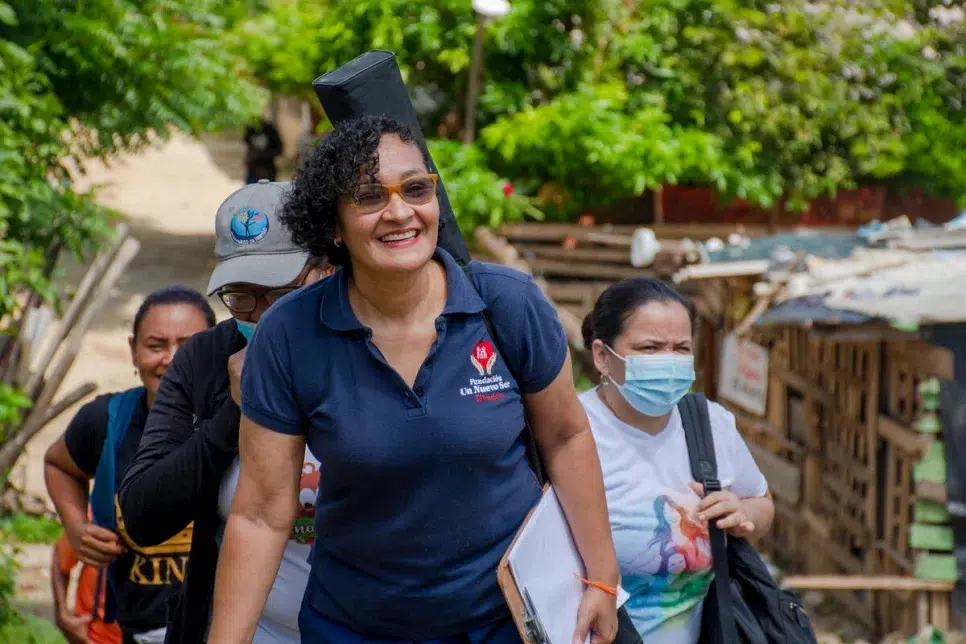
Gloria Inés Padilla Benítez, director of the Fundación Un Nuevo Ser, walks with refugees, migrants and returnees at the Villa Caracas settlement in Barranquilla, Colombia. © UNHCR/Manuel de Jesus Díaz Polo
She said that many of the women she works with feel they have no choice but to stay in abusive relationships because they fear not being able to put food on the table or pay the rent if they leave. She added that rising inflation is making the problem worse. “If most of the women we work with were already earning substandard wages, or barely making ends meet by selling coffee or other products on the streets, rising prices have only made it that much harder for them to survive, which of course makes it that much harder for them to free themselves from abusive relationships.”
The type of informal work that Venezuelan refugee and migrant women, many of whom lack papers, are able to secure in Colombia also increases their risk of exposure to gender-based violence.
“Some women find themselves in such difficult circumstances that entering into an abusive relationship or selling sex seems like the only way out,” said Gloria, adding that her organization tries to step in and provide support so that women are not forced to make such harmful choices.
“We’re all seeing our money going less and less far.”
“At Fundación Un Nuevo Ser, we draw on strength in numbers to try to help. None of us has much, but if we all put in just a little, we can sometimes raise enough money to help someone out of a very difficult situation,” she said, acknowledging that inflation has taken a bite out of the group’s ability to help. “We all are seeing our money going less and less far, so it’s very hard.”
While the need for programmes to address gender-based violence affecting forcibly displaced people has never been greater, funding is not keeping pace. UNHCR estimates the budgetary needs for its programmes to prevent and respond to gender-based violence at US$330 million in 2023, the highest ever.
In Sudan, another country where food assistance for refugees has been cut by 50 per cent in recent months, the lack of funding is having a major impact on gender-based violence programming, according to Alisona Rajbanshi, a protection officer with UNHCR based in Khartoum.
“It’s difficult to provide full geographical coverage for gender-based violence prevention and response,” she said. “Psychosocial support services for survivors are being impacted in some locations. There is a lack of safe houses for survivors.”
At Um Rakuba refugee camp in eastern Sudan, which opened in late 2020 to shelter Ethiopian refugees fleeing the conflict in Tigray, the lack of adequate funding for services to support gender-based violence survivors has consequences for women in need of protection.
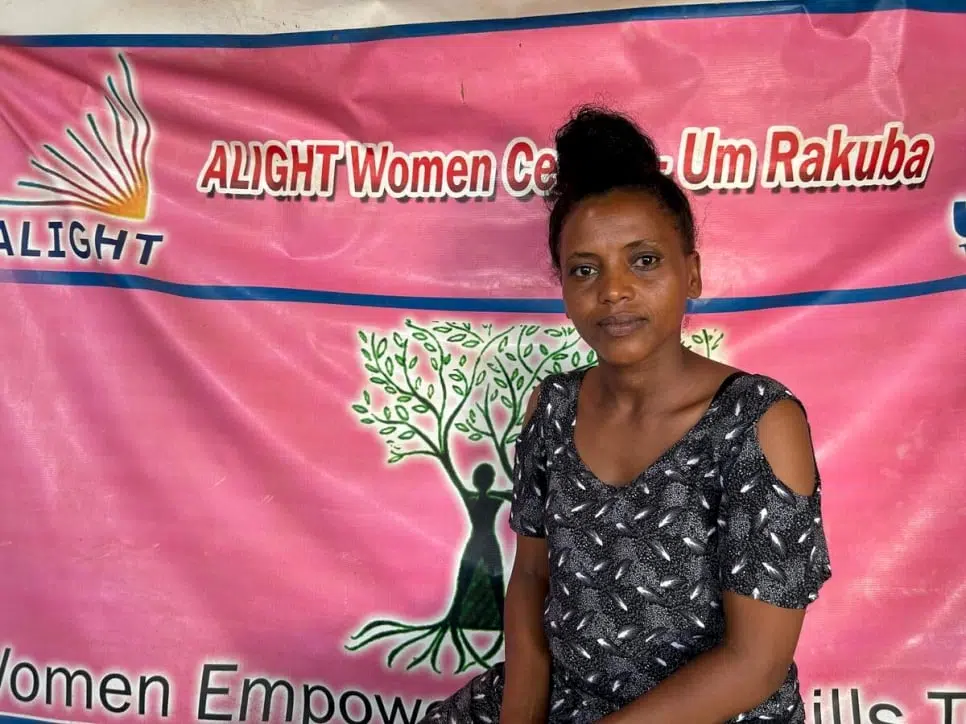
Bisrat Kifle fled Tigray in 2020, leaving her family behind. She now lives in Um Rakuba camp in eastern Sudan where she volunteers at a women’s centre, providing a listening ear to other women. © UNHCR/Althea Gonzales
“Every day we are observing physical violence between husband and wife – because of the money, because of the situation, because of the life,” said Bisrat Kifle, a 26-year-old former English teacher from Tigray who volunteers at a women’s centre in the camp run by UNHCR partner Alight.
“The first thing most gender-based violence survivors ask for is emergency shelter,” she said. “When she fights with the perpetrator …. she fears to stay in that space. She needs a safe space.”
“If they received the full ration, everything would be better.”
Besides running awareness-raising sessions and referring women to one of the humanitarian agencies in the camp working with survivors, Bisrat and her fellow volunteers listen to women’s concerns, offering them support and a shoulder to cry on.
“We listen to them carefully, with respect,” said Bisrat. “If she wants to cry, we let her cry. We can’t promise anything because if we promise them, we will hurt them if that’s not fulfilled.”
“If they received the full ration, everything would be better,” she added. “It’s difficult to be fine if you’re displaced from your country, your home. It’s difficult to say everything will be okay, but it could be better than this.”
*Name changed for protection reasons.
Additional reporting by Jenny Barchfield in Colombia, Kelly Koo in Ethiopia, and Althea Gonzales and Mary Burton Kwanjana in Sudan.
Originally published by UNHCR on 25 November 2022.




